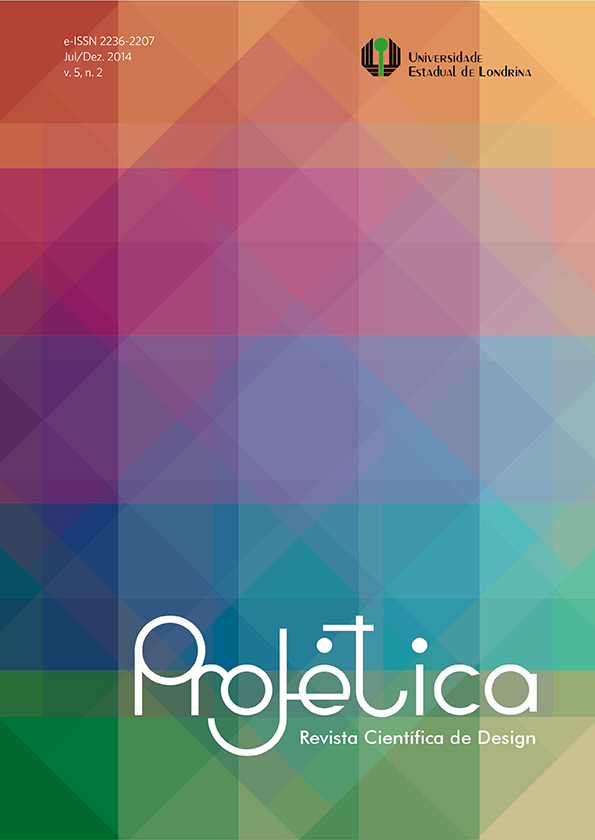Reinforcement and reward: The gamification treated under a behaviorist approach
DOI:
https://doi.org/10.5433/2236-2207.2014v5n2p9Keywords:
Gamification, Behaviorism, Operant conditioningAbstract
This article introduces the concept of gamification and explores the contribution of the philosophy of science of behavior expressed in radical behaviorism to the process that creates involvement with the user. Bibliographic data are presented that justify and conceptualize the term gamification and its relationship with the radical behaviorism of Skinner. The gamified systems are presented as tool that can assist in changing behavior, both individual and collective, aiming at reinforcing behaviors considered positive for societyDownloads
References
BAKKES, Sander, TAN, Chek Tien, PISAN, Yusuf. Personalised gaming: a motivation and overview of literature. In: AUSTRALASIAN CONFERENCE ON INTERACTIVE ENTERTAINMENT: PLAYING THE SYSTEM, 8th, 2012, Nova Iorque. Proceedings… New York: ACM, 2012.
BALLONE, Geraldo José. Alterações da atividade voluntária. Disponível em: http://www.psiqweb.med.br/site/?area=NO/LerNoticia&idNoticia=202. Acesso em: 11 maio 2008.
CAILLOIS, Roger. The definition of play, the classification of games. In: SALEN, Katie, ZIMMERMAN, Eric. The game design reader: a rules of play anthology. London: MIT Press, 2006.
DETERDING, Sebastian, KHALED, Rilla, NACKE, Lennart E., DIXON, Dan. Gamification: toward a definition. 2011a. Disponível em: gamification-research. org/wp-content/uploads/2011/04/02-Deterding-Khaled-Nacke-Dixon.pdf. Acesso: jun. 2013.
DETERDING, Sebastian, SICART, Miguel, NACKE, Lennart E., O'HARA, Kenton, DIXON, Dan. Using game design elements in non-gaming contexts. 2011b. Disponível em: http://gamification-research.org/wp-content/uploads/2011/04/01-Deterding-Sicart-Nacke-OHara-Dixon.pdf. Acesso em: 11 jun. 2013.
FRASCA, Gonzalo. Ludology meets narratology: similitude and differences between (video) games and narrative. 1999. Disponível em: <http://www.ludology.org/articles/ludology.htm>. Acesso em 20 abr. 2013.
GROH, Fabian. Gamification: state of the art definition and utilization. In: SEMINAR ON RESEARCH TRENDS IN MEDIA INFORMATICS, 4th, 2012, Ulm. Proceedings… Ulm: University Institute of Media Informatics, 2012. p. 39-46.
HUIZINGA, Johan. Homu ludens: jogo como elemento da cultura. Tradução de João Paulo Monteiro. São Paulo: Perspectiva, 1980.
KOHN, Alfie. Punished by rewards: the trouble with gold stars, incentive plans, a's, praise and other bribes. Nova Iorque: Houghton Mifflin Company, 1999.
McGONIGAL, Jane. Reality is broken: why games make us better and how they can change the world. Penguin Press, New York, 2011.
MOORE, Michael. Basics of Game Design. London: CRC Press, 2001.
OLIVER, Richard L. Satisfaction: a behavioral perspective on the consumer. 2. ed. New York, ME Sharpe Inc., 2010.
SRIDHARAN, Mithun, HRISHIKESH, Aditya, RAJ, Lena Sunali. An academic analysis of gamification. 2012. Disponível em: http://uxmag.com/resources/an-academic-analysis-of-gamification. Acesso em: 24 jun. 2013.
SKINNER, Burrhus Frederic. Sobre o behaviorismo. São Paulo: Cultrix, 1982.
ZILIO, Diego. A natureza comportamental da mente: behaviorismo radical e filosofia da mente. São Paulo: Cultura Acadêmica, 2010.
XU, Yongwen. Literature review on web application gamification and analytics. 2012. Disponível em: https://csdl-techreports.googlecode.com/svn/trunk/techreports/2011/11-05/11-05.pdf. Acesso: 11 jun. 2013.
Downloads
Published
How to Cite
Issue
Section
License
Copyright (c) 2015 Projetica

This work is licensed under a Creative Commons Attribution 4.0 International License.
Projética está licenciada sob a Creative Commons Attribution CC-BY 4.0 International. Os autores detém os direitos autorais e concedem à revista o direito de exclusividade de primeira publicação.
Os autores dos trabalhos aprovados autorizam Projética a, após a publicação, ceder seu conteúdo para reprodução em indexadores de conteúdo, bibliotecas virtuais e similares.
Os autores assumem que os textos submetidos à publicação são de sua criação original, responsabilizando-se inteiramente por seu conteúdo em caso de eventual impugnação por parte de terceiros. As opiniões emitidas pelos autores dos artigos são de sua exclusiva responsabilidade.
A revista se reserva o direito de efetuar, nos originais, alterações de ordem normativa, ortográfica e gramatical, com vistas a manter o padrão culto da língua e a credibilidade do veículo. Respeitará, no entanto, o estilo de escrever dos autores. Alterações, correções ou sugestões de ordem conceitual serão encaminhadas aos autores, quando necessário. Nesses casos, os artigos, depois de adequados, deverão ser submetidos a nova apreciação. As provas finais não serão encaminhadas aos autores.












